
Valentine's Day - a reading list
Love. It makes people do the strangest things and at the same time it is a primary necessity of life. Over the centuries, writers and poets have filled up entire libraries with books on real and fictional relationships, and contemporary writers still like to delve into the complex, dramatic and at times comical subject. For this reading list, we selected some of our favourite books about love and Valentine's Day.
All books in the list below are from the collections of the UBL, but are just a selection of the thousands of books about love that the UBL owns. Click on the link under the title of the book to request it, or search our Catalogue.
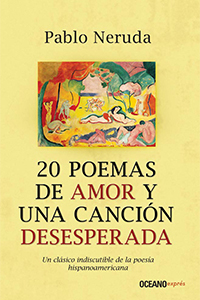
Pablo Neruda, Veinte poemas de amor y una cancion desesperada
1998
Perhaps one of the most famous works of poetry around the world, readings of Twenty Love Poems and One Song of Despair features in many a radio show across Latin America on February 14th. Especially poem XV is often read out to audiences: “Me gustas cuando callas porque estás como ausente”/”I like for you to be still because it is as though you were absent”. Although perhaps too sweet and hyperbole for many, others consider this work to be one of the best expressions of romantic love. This collection of poems evades abstract musings on love and more often than not is directed at "you", which makes the poems so suitable for declarations of love that can be read to anyone.
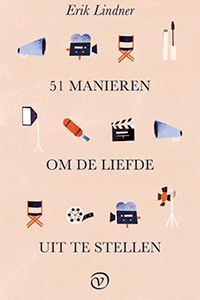
Erik Lindner, 51 manieren om de liefde uit te stellen
2021
“Can I make someone appear in writing who is not actually there?” This question is asked by a character in the novel 51 manieren om de liefde uit te stellen (51 ways of postponing love) by the Dutch poet and novelist Erik Lindner. In the novel, a journalist leaves for San Sebastian, in the farthest North of Spain, to write about the striving for independence of the Basque population. When he sits in a bar, a woman waves at him, Karmele, a film cosmetician who is equally illustrious and -inherent to her profession- concealed from sight. The main character and Karmele get a short and passionate love affair, after which the journalist returns to the Netherlands. It turns out, however, that Karmele made a lasting impression. The journalist starts searching for her in movies she worked on. Her work as a cosmetician leads to traces of presence that should temporarily counterbalance her absence: "She lives in the stories of the movies she helped make, and by following these stories I feel connected to her, no matter how laborious and third-rate." Between Karmele and the I-figure, a language barrier existed and still exists, but in spite of that, they understood each other. Now that the "I" attemps to grasp this love by writing about it, he also takes a risk, because he gives words to something that was largely wordless: "Can I write about love without breaking her, as a constant serenade?" An answer to that question exists, and it is the novel 51 ways of postponing love
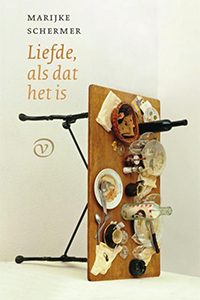
Marijke Schermer, Liefde, als dat het is
2019
According to the important Italian writer Claudio Magris, a novel should not be concerned with judging or defining things, but with showing the contradictions and inarticulate tensions that are inherent to life, without the novelist judging what he shows. The Dutch writer Marijke Schermer meets these demands entirely. In her widely acclaimed novel Love, if that’s what it is, a couple is central: Terri and David. When they are married for 25 years, Terri all of a sudden leaves with her lover, letting David and two teen daughters behind. In her novel, Schermer illustrates how in a marriage, throughout the years, tension can turn to boredom, and how passion and desire can lead one to put on the line the security and safety of a relationship. With her novel, Schermer was nominated for the Libris Literature Prize.
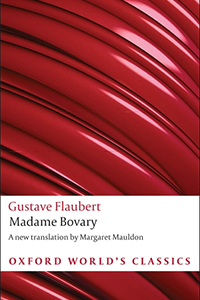
Gustave Flaubert, Madame Bovary
1857
After having read the manuscript of The Temptation of Saint Anthony for three full days to his friends, they recommended he throw his book in the fireplace. The novel was too romantic, too exuberant, too lyrical. Thereupon, Flaubert started writing another book, in which he tried to "unlearn" these writing habits. In a modest, realistic style he wrote a book that he himself considered for years to be "lines". Ultimately, this novel became the world-famous novel Madame Bovary. The subtitle of this novel is: mœurs de province, provincial manners. The novel is about Emma, a woman married to a doctor, the somewhat boring and superficial Charles Bovary. In novels, Emma reads about all sorts of possible lives she could live, about romantic love affairs and adventures. Letting herself be led by these novels, her desires and emotions, she indulges in several love affairs. As in several other nineteenth century romantic novels, such as Anna Karenina and Effi Briest, it doesn’t end well with Emma: she swallows a lethal amount of arsenic with death as a consequence.
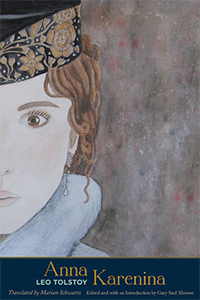
Lev Tolstoj, Anna Karenina
1878
“Happy families are all alike; every unhappy family is unhappy in its own way.” This is the famous opening sentence of Anna Karenina, that is generally known, together with War and Peace, as the crowning work of Russian Lev Tolstoj (1828-1910). The novel tells the story of the socialite Anna Karenina, who, after hesitations and reprimands from her husband Aleksey Aleksandrovich Karenin, returns the affection of count Vronsky. She becomes pregnant from him and after a while, Anna is forced to confess the affair to her husband. In this layered novel, drama isn’t shunned: countless intrigues, tensions, and moving embroilments result in a complex tangle of plots. When Tolstoy was once asked by a journalist what Anna Karenina was ultimately about, he replied: “If I were to answer your question, I would have to read you the entire novel.” In other words: every plotline contributes to telling the story of Anna Karenina, to showing and evoking the contradictions inherent to life. Like with Emma Bovary, it doesn’t end well for Anna: out of sheer bitterness, desperation and envy she throws herself in front of a train.
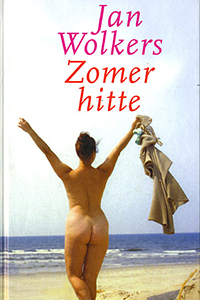
Jan Wolkers, Zomerhitte
2005
When Zomerhitte appeared as a Boekenweek gift in 2005, Jan Wolkers (1925-2007) hadn't published a novel for more than 20 years. It would also turn out to be his last. Since 1984 he mainly occupied himself with writing essays. Still, Zomerhitte is a typical Wolkers novel: a story in fiery language about love, death, sex, nature and violence, set on the island of Texel, so much loved by Wolkers. The story is about a summer romance between art photographer Jan and barmaid and history student Kathleen, who turns out to be involved in drug smuggling. In 2007 the book was made into a film by Monique van de Ven, with Sophie Hilbrand and Waldemar Torenstra in the lead roles.

L.D. Benson (ed.), The Riverside Chaucer
2008
Geoffrey Chaucer (d. 1400) is arguably the most famous poet from the Middle Ages and many will have read his Canterbury Tales. Another famous poem of Chaucer’s is thought to have been the origin of Valentine’s Day’s connection to romantic love. His poem The Parlement of Foules (that is: the parliament of birds), written on the occasion of the engagement of King Richard II and Anne of Bohemia, describes a dream vision of how various birds try to woo their partners. Chaucer notes how the day of Saint Valentine in particular is the time “whan every foul cometh ther to chese his make” [when every bird comes there to choose its match]. More than 600 years after this poem, we still act like Chaucer's birds on Valentine's Day!
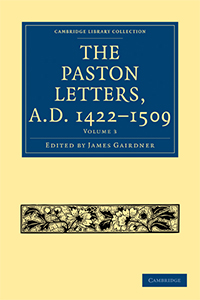
J. Gardner (ed.), The Paston Letters, A.D. 1422-1509
2010
The Paston Letters were written by various members of an English family in Norfolk between the years 1422 and 1509. This correspondence is important for both historians and linguists: the letters give inside information about daily life in a tumultuous period of English history (including the Wars of the Roses) and they display unfiltered language for personal use, at a time when Middle English was transitioning to Early Modern English. The collection also contains the earliest known Valentine’s letter. In a letter dating to 1477, Margery Brewes addresses her future husband John Paston as "ryght reverent and wurschypfull, and my ryght welebeloved Volutyne". She concludes her letter with her express desire that this letter is for John’s eyes only: “I besech yowe that this bill be not seyn of none erthely creatur safe only your selffe” [I ask you that this letter is not seen by any earthly creature except by you yourself]. Ironically, the letter can now be seen by any earthly creature with access to Leiden University Libraries, where an edition of this and other Paston Letters is available as an online resource.
